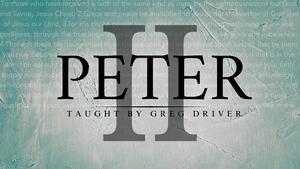The Bible warns about false apostles and prophets. But how does the church go about getting corrected if needed, and by whom?
The Bible warns the church repeatedly to be on guard against false teachers, who seek to pull believers away from the truth of God’s word and into following myths and false doctrines that bring ruin. As Paul warns:
1Tim. 1:3 As I urged you upon my departure for Macedonia, remain on at Ephesus so that you may instruct certain men not to teach strange doctrines,
1Tim. 1:4 nor to pay attention to myths and endless genealogies, which give rise to mere speculation rather than furthering the administration of God which is by faith.
1Tim. 1:5 But the goal of our instruction is love from a pure heart and a good conscience and a sincere faith.
1Tim. 1:6 For some men, straying from these things, have turned aside to fruitless discussion,
1Tim. 1:7 wanting to be teachers of the Law, even though they do not understand either what they are saying or the matters about which they make confident assertions.
1Tim. 6:3 If anyone advocates a different doctrine and does not agree with sound words, those of our Lord Jesus Christ, and with the doctrine conforming to godliness,
1Tim. 6:4 he is conceited and understands nothing; but he has a morbid interest in controversial questions and disputes about words, out of which arise envy, strife, abusive language, evil suspicions,
1Tim. 6:5 and constant friction between men of depraved mind and deprived of the truth, who suppose that godliness is a means of gain.
Paul warns us to be wary of those who advocate for a “different” doctrine. That begs the question, different than what? The answer is different than what we have been given in the word of God. The ultimate test of whether a certain teaching is right or wrong is if it agrees with Scripture or not. We must compare what we are told against the Bible – which is how the Lord instructs, corrects and guards His church. Paul tells us this:
2Tim. 3:16 All Scripture is inspired by God and profitable for teaching, for reproof, for correction, for training in righteousness;
2Tim. 3:17 so that the man of God may be adequate, equipped for every good work.
The word of God will teach us, correct us and train us up in righteousness Paul says. So by knowing our Bible we will be protected from false teaching, and the best example of this principle at work is found in the response of the Bereans to the preaching of Paul:
Acts 17:10 The brethren immediately sent Paul and Silas away by night to Berea, and when they arrived, they went into the synagogue of the Jews.
Acts 17:11 Now these were more noble-minded than those in Thessalonica, for they received the word with great eagerness, examining the Scriptures daily to see whether these things were so.
Notice that the Bible praises the Bereans for their willingness to double-check Paul’s teaching against the Scriptures, which is an excellent practice for all Christians to follow. As we receive teaching, we must compare it to what we find in the Bible, and in that way we avoid false teaching and receive correction from the Lord.
Therefore, the one and only method the Lord gives His church for avoiding false teachers and for maintaining a obedient walk with Him is to know the word of God. Everything the church needs to know in order to live a godly life is found in the Bible. Peter says that in our knowledge of Christ (in the Scriptures) we have everything we need:
2Pet. 1:2 Grace and peace be multiplied to you in the knowledge of God and of Jesus our Lord;
2Pet. 1:3 seeing that His divine power has granted to us everything pertaining to life and godliness, through the true knowledge of Him who called us by His own glory and excellence.
Scripture quotations taken from the (NASB®) New American Standard Bible®, Copyright © 1995, 2020 by The Lockman Foundation. Used by permission. All rights reserved. www.lockman.org









